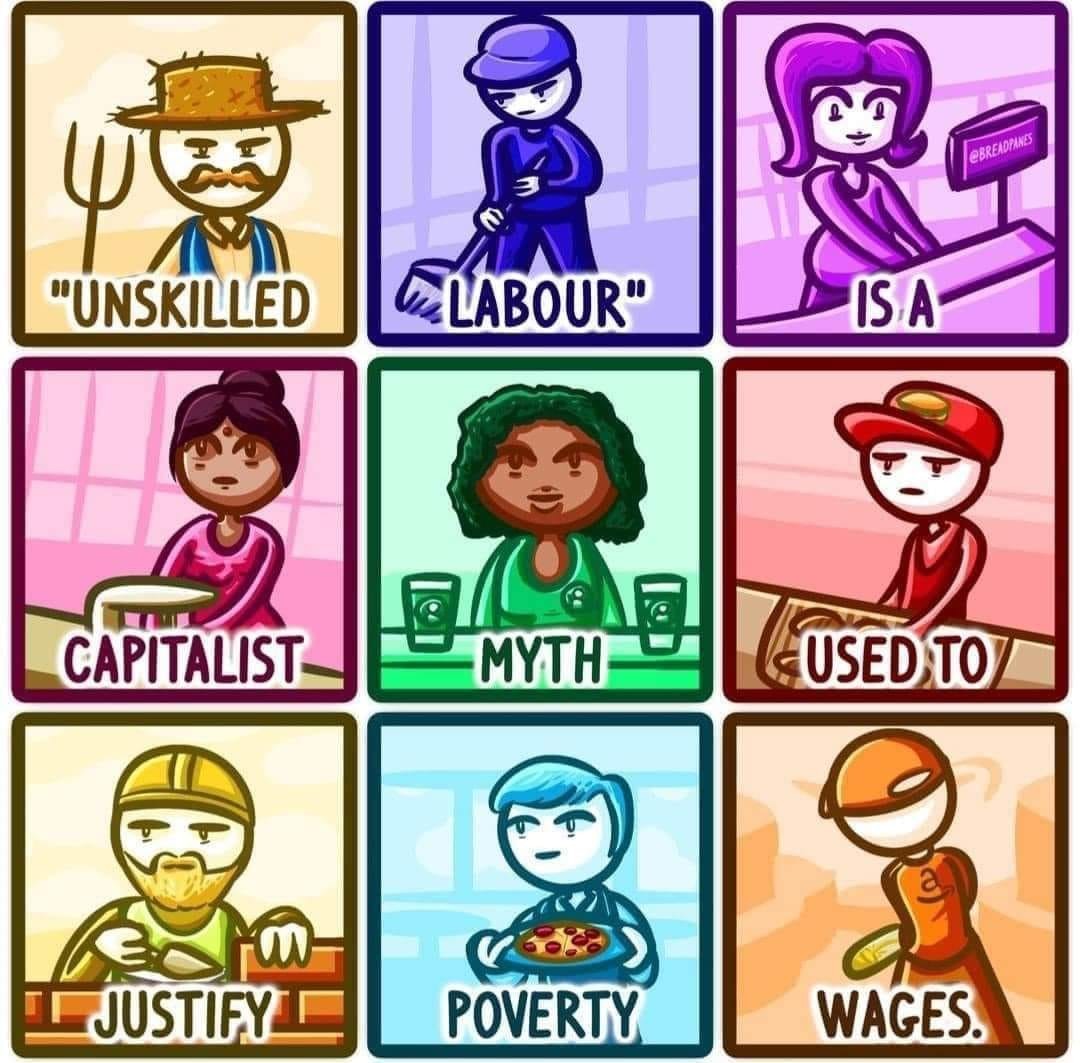Every fucking time:
It's a distinction between "on-the-job training will suffice" and "no chance without years of prep."
No shit anything worth paying a human for involves human skills. But some jobs are open to just about anyone who can put up with it, and some jobs kill people when you try to muscle through on sticktoitiveness. A fast food restaurant can bring some rando up-to-speed in a couple weeks. An ER cannot. The distinction is necessary.
Nitpicking the label misses the point:
All labor deserves a living wage.
It doesn't fucking matter how difficult or complex a job is. If your business wants people's time - you had better fucking pay them enough to be there next month. Otherwise, you don't get to be a business.
